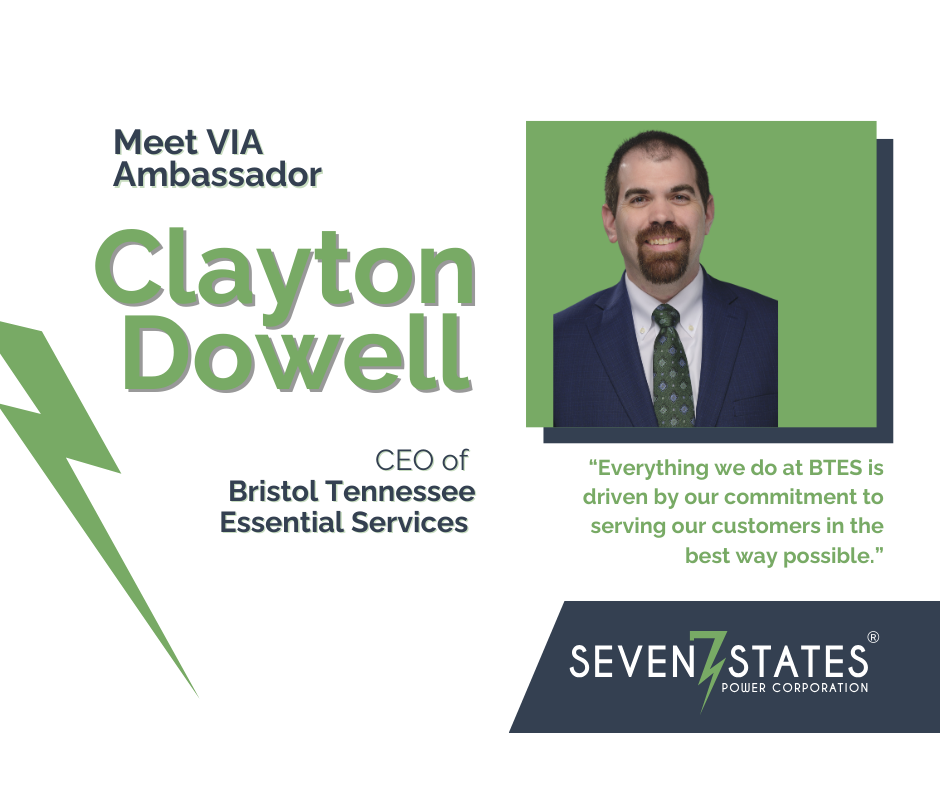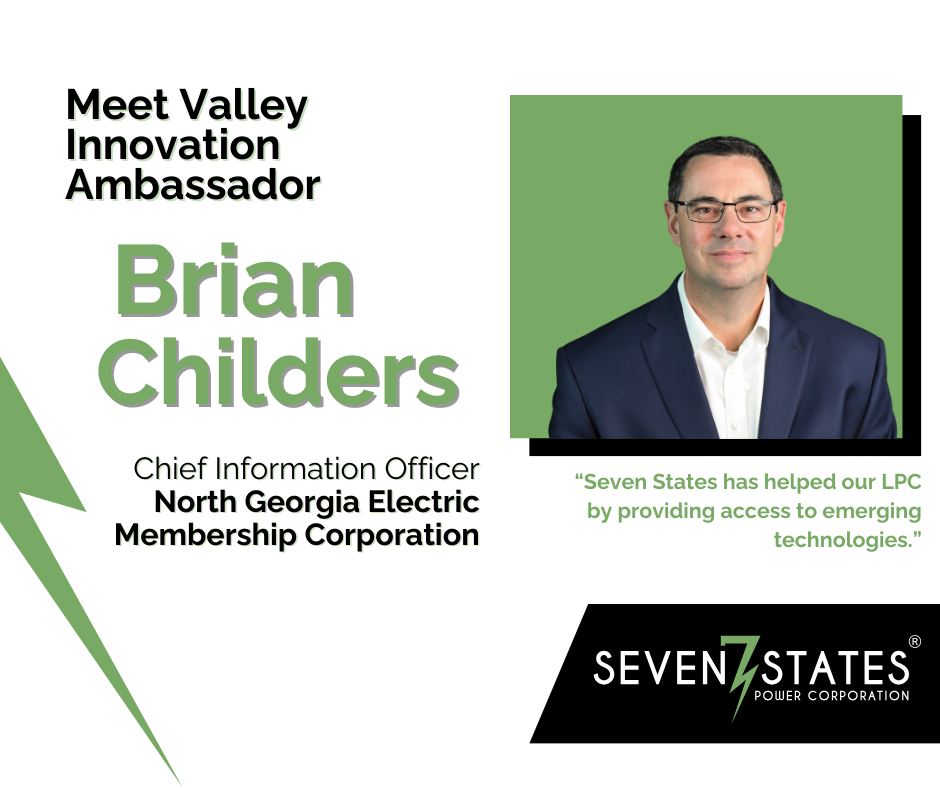
In a time where innovation drives progress and defines success, Clayton Dowell is committed to forward-thinking initiatives that move his community forward.
Leading Bristol Tennessee Essential Services (BTES) as CEO, Clayton is focused on bringing innovation to his community to improve his customers’ lives.
“We’ve been fortunate to have a team that has embraced the practical use of technology in many ways, for many years. We have decades of experience with demand response programs, distributed automation, and developed methods to automatically report outages before AMI systems were available. Most recently, we’ve increased our focus on customer interactions and how we can leverage new technologies to optimize these engagements. One of our current initiatives is the implementation of a new Customer Information System to homogenize our electric and fiber optic services. This will help us better serve our customers and create a more seamless connection between our electric and fiber optic systems. Additionally, we are actively working to update our fiber optic equipment so we can continue providing the best connectivity at the fastest speeds for our customers, even in the most rural parts of our service area.”
Clayton discovered that partnering with Seven States provided essential expertise for his technology initiatives, acting as a reliable ally fully committed to supporting his vision.
“In our community, we have seen a steady increase in electric vehicle adoption. With our vision to be our community’s trusted resource for energy and connectivity, we felt it was important to help provide some of the initial EV charging opportunities for our customers. We partnered with Seven States to support our installation of several DC fast chargers and level 2 chargers at strategic locations to help meet this growing need. The team from Seven States provided installation best practices and sourced the right chargers for our implementations.”
Amid the many changes across the Valley, Clayton remains focused on what matters most—his customers—and is constantly evaluating new technologies to determine how they can meet the evolving needs of the community he serves.
“Everything we do at BTES is driven by our commitment to serving our customers in the best way possible. Innovation isn’t just about adopting the latest technology – it’s pragmatic, finding meaningful ways to improve. Sometimes that means learning from industry leaders and best practices, but often it requires deep, intentional thinking to develop new ideas, processes, and technologies that make a real difference for our customers. At BTES, we don’t chase the next ‘shiny thing’ – we take a thoughtful approach, ensuring that every innovation we implement has a direct, positive impact on our community while ensuring that improvements are strategic, sustainable, and customer-focused. While technological advancements are part of this process, we also seek innovation in key organizational practices – whether it’s improving customer service, enhancing reliability, or streamlining operations. Ultimately, innovation at BTES is about continuously evolving to better meet the needs of the customers we serve.”
On the topic of advice to new managers who want to bring innovation to their LPC footprint, Clayton emphasized the importance of staying open-minded and listening closely to customers to ensure their needs drive strategic decisions.
“As leaders in our industry and community, I believe we can find great value in pragmatic innovation. We need to be open-minded and listen to both our customers and employees to identify the challenges that limit their ability to succeed. Then, we must be willing to facilitate audacious ideas that may challenge our traditional way of doing business in order to help those we serve reach new levels of satisfaction and success. Our focus should be on supporting others. If we flip the traditional org chart upside down, our leadership model is built from the bottom up, with managers serving our employees in a way that provides a solid foundation for them to build upon and the space to innovate.”




